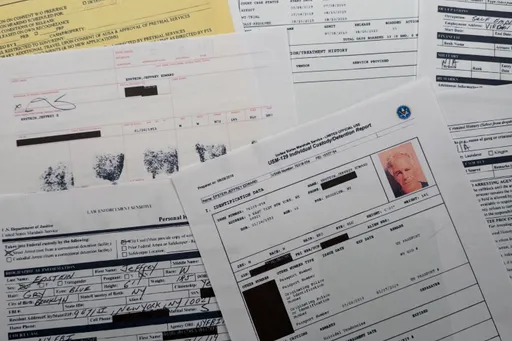The UAE’s Hope mission returned its first photo of Mars this week, a beautiful high-resolution image of a dusty red marble. The spacecraft will study the planet’s weather and climate systems, and send data to earth to be studied by scientists worldwide.
Hope was joined in orbit by China’s Tianwen-1 mission, and NASA’s Perseverance is due to reach the red planet this week. Their mechanical brethren, the Russian-European ExoMars mission will arrive in 2022.
While scientists await new information that could further reveal the possibilities and potential outside earth, some analysts look beyond the common ties of scientific kinship and have already heralded a new era of space races.
The space industry is experiencing a renaissance of sorts after more than half a century, with new players, including developing countries and private firms; and more ambitions than before, moving beyond international prestige with geopolitical competition, economics and commercial potential shaping the actions of the actors.
What will this new era of space competition bring?
“No finish line”
The first “space race” during the Cold War was a competition between the US and USSR to reach the moon and harness space technology for their military advantage. Today, there are more than 80 countries operating satellites in space, and about a dozen countries with space programs with launching capabilities.
“I wouldn’t call it a ‘space race’ because there's no finish line for one or several entities competing,” says John Logsdon, founder of the Space Policy Institute and professor emeritus at George Washington University. “So it's a competition - for economic payoffs, for political prestige, for military power.”
The traditional space powers, the US, Russia and Europe remain key players, but as the world becomes increasingly dependent on space-based services - from telecommunications technology and education, to weather forecasting for agriculture, to disaster monitoring and management, and other civilian and military uses, it’s no surprise that others, like China, India, Japan, UAE, Brazil, Pakistan, Turkey, Israel, and Luxembourg, to name a few, have joined in.
As more states dabble in space exploration, disagreements about rules, regulations, and governance could also arise more frequently. The rules for space were set out in the Outer Space Treaty of 1967 and a few associated treaties, when there were only a few satellites and two players.
“The governing structure for space activities is way out of date and doesn’t reflect today's realities in space,” says Logston. “There are no rules. There’s no space traffic regime or control. [There are] thousands of objects in space - satellites and space debris. It’s a wild environment up there with things shooting around and no traffic management to make sure they don’t collide with one another.”
The space ‘gold rush’
In addition to space traffic, resource extraction and utilisation is a new area for which legal and governance mechanisms are lacking, and which will become an increasingly important question in the coming years.
Led by firms like Boeing, Lockheed Martin, and Airbus, which have supported government efforts, as well as newer companies like US-based Blue Origin and SpaceX, New Zealand-based Rocket Lab, and China-based OneSpace, which have their own visions, “space entrepreneurs” seek profits from businesses ranging from satellites to travel, and logistics to biospheres and education.
The space industry was valued at $420 billion in 2020, and is expected to reach $1 trillion or more in the next decade.
Moreover, prospects for mining raw materials like metals, minerals, and chemicals; and extracting water are closely followed by governments and private firms alike.
The US and Luxembourg have passed laws recognising ownership rights over extracted space materials, though many scholars view these approaches as inconsistent with international treaties and customary international law, and as going against the principle of space as a global commons and a “common heritage of mankind”. Comprehensive global legal and policy frameworks have yet to be developed.
The geopolitics of space
The legal and policy gaps are further complicated by contemporary geopolitical competition.
Part of the problem is that space technologies often have dual use - for military and civilian purposes. States can’t tell whether these technological space efforts are threatening to them or not, argues Saadia Pekkanen, co-director of the Space Policy and Research Center at the University of Washington.
“[T]he narrative today has shifted from mere space situational awareness to battlespace awareness,” she writes. “As a result, countries face an increasing danger of aggression or even open conflict in outer space."
Until now, this global competition has primarily been framed in terms of US-China rivalry. Where does this place other countries’ (militarised) space programs?
In 2008, Japan’s parliament lifted the ban on the use of space for national security. South Korea’s program emerged from a need to track North Korea’s missile activities. India’s space program, which was motivated by sovereignty concerns in the 80s and 90s has re-oriented its program toward more military use, even though it had a long-standing policy of non-weaponisation of space. India launched military satellites to support its navy and armed forces in navigation and intelligence, tested an anti-satellite missile, and made institutional changes to integrate and utilise the space in military operations.
“Today, India’s approach to space policy is driven much more by national security worries,” writes Dr. Rajeswari Pillai Rajagopalan who heads the Nuclear and Space Policy Initiative at the Observer Research Foundation. “There are genuine security-driven considerations for India and other Asian powers in shaping their space programmes. Outer space is becoming an extension of the terrestrial geopolitical competition, with all participating.”
Does this translate to a threat of star wars? Not necessarily, according to Logsdon, who underlines the importance of examining space activities in the context of overall political relationships.
“The space activities themselves are not threatening in any way, until they get embedded into either an economic or military threat from another country,” he said.























